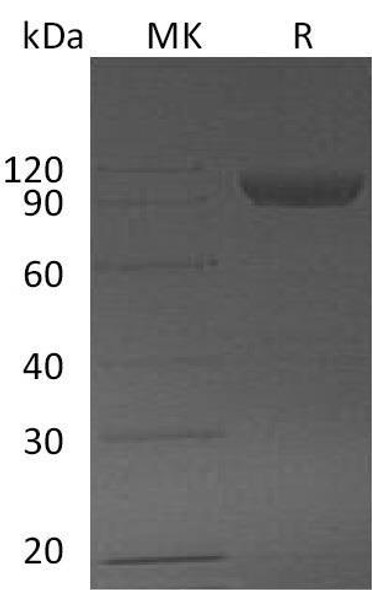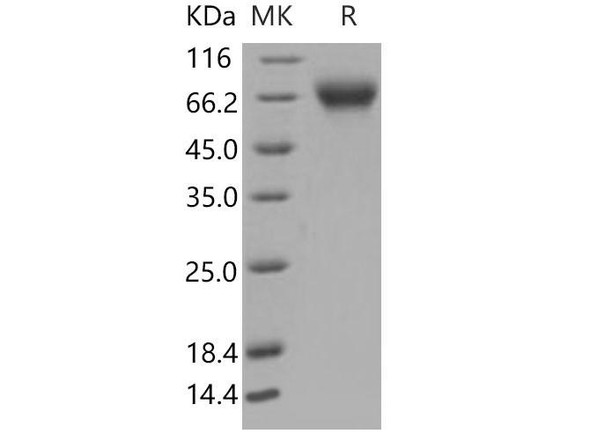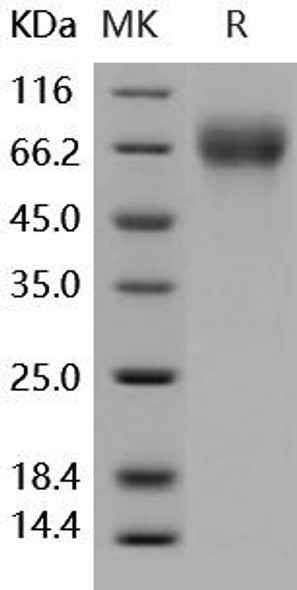| Background: | SerpinF2, also known as alpha-2 antiplasmin (alpha-2 AP), is a member of the Serpin superfamily. SerpinF2 is the principal physiological inhibitor of serine protease plasmin, and as well as, an efficient inhibitor of trypsin and chymotrypsin. This protease is produced mainly by liver and kidney, and also expressed in muscle, intestine, central nervous system, and placenta also express this protein at a moderate level. It is indicated that Serpin F2 is a key regulator of plasmin-mediated proteolysis in these tissues. Alpha-2 AP is an unusual serpin in that it contains extensive N- and C-terminal sequences flanking the serpin domain. The N-terminal sequence is crosslinked to fibrin by factor XIIIa, whereas the C-terminal region mediates the initial interaction with plasmin. SerpinF2 is one of the inhibitors of fibrinolysis, which acts as the primary inhibitor of plasmin(ogen). It is a specific plasmin inhibitor, and is important in modulating the effectiveness and persistence of fibrin with respect to its susceptibility to digestion and removal by plasmin. Alpha-2 AP plays the dominant role in inhibiting both plasma clot lysis and thrombus lysis, and accordingly, the congenital deficiency of Alpha-2 antiplasmin causes a rare bleeding disorder because of increased fibrinolysis. Thus, it may be a useful target for developing more effective treatment of thrombotic diseases. |






